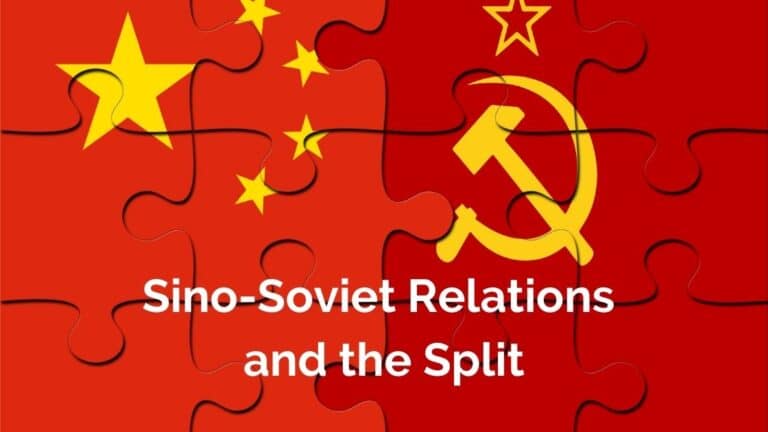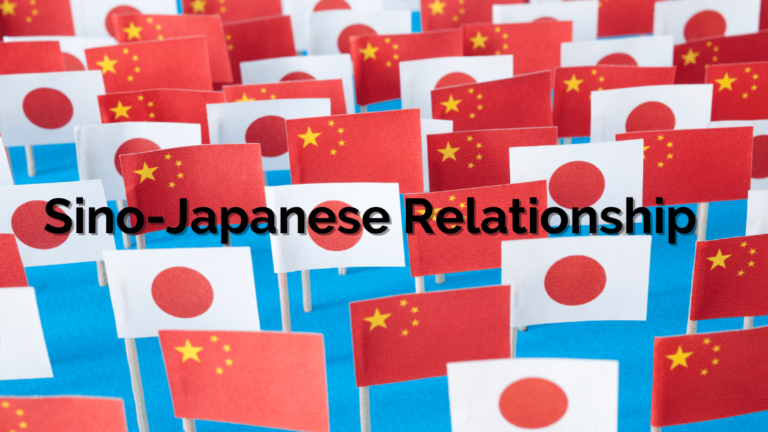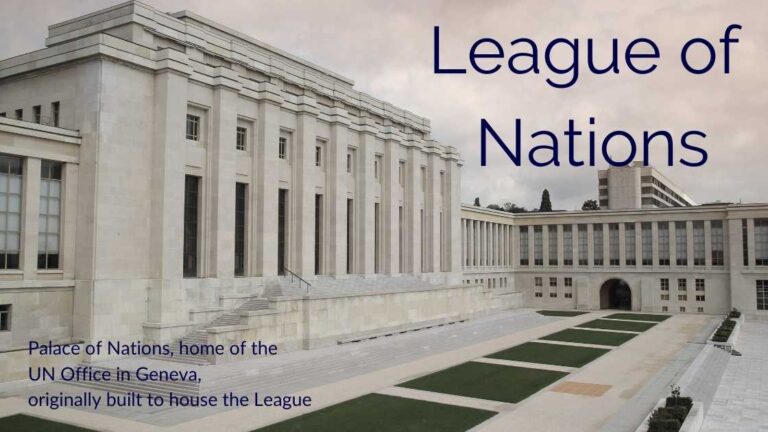Reasons for the Cold War: 4 Essay Questions
For ‘O’ and ‘N’ Level History, the reasons for the Cold War are tested quite frequently. As a reason, I am giving out some suggested answers for the reasons for the Cold War. This is only a sample of the essay question database but I believe that it gives students a good variety of questions to refer to.
The reasons for the Cold War Essay questions are presented below:
1. Explain the reasons for the Cold War.
(P) The Soviets perceived that the Allies had purposely delayed the opening of the Second Front.
(E) The Soviet Red Army bore the brunt of the German attacks in World War Two. In 1941, Stalin urged the Allies to open a Second Front in France to relieve the Soviet forces of the immense pressure from the German army. But it was never opened until 1942.
(E) Stalin perceived this delay as a deliberate attempt by the Allies to minimize their losses and to let Germany and the USSR weaken and destroy each other in the process.
(L) Hence, Stalin did not trust the Allies and this distrust was one of the reasons for the Cold War after World War Two.
(P) The disagreements during the Yalta Conference of February 1945 created a rift between the Allies and the Soviets.
(E) In Feb 1945, Stalin, US President Roosevelt and British PM Churchill met at Yalta to decide on how they should defeat Germany and arrangements for post-war Europe. They agreed to divide Germany and Berlin, set up the United Nations and Soviet assistant against Japan.
(E) Beneath the seemingly friendly relations and agreements among the three leaders were very different ideas about how post-war Europe should be. USSR wanted a Communist Europe while the USA and Britain disagreed.
(L) Thus, it was apparent from the difficult negotiations at the Yalta conference that the wartime alliance would soon give way to differences.
(P) Another one of the reasons for the Cold War was the USA’s nuclear monopoly and the use of the atomic bomb on Japan was the final nail in the coffin.
(E) The Americans had been developing a new weapon, the atomic bomb, under the Manhattan Project since 1942. The USA used the atomic bombs on Japan in August to bring back a quick end to the war and hoped that it would give the USA political leverage over the USSR in post-war negotiations.
(E) However, the US kept the Project a secret and informed Stalin only after its successful testing. It only served to make Stalin suspicious of the US intentions. Stalin also saw the nuclear monopoly as a threat and this led to his desire for his country to catch up with the Americans, contributing to the arms race after World War Two.
(L)Thus the American nuclear monopoly further strained relations between the USA and the USSR resulted in the arms race, which led to the start of the Cold War.
2. “The Cold War came about because Stalin was afraid of the Western powers.” How far do you agree with the statement? Explain your answer.
(P) I agree in part that the Cold War came about because Stalin was afraid of the Western powers.
(E) Stalin worried tremendously about the Western powers and his reaction to the Western powers accelerated the Cold War. The Western democracies and Communism have a long history of distrust so it is not surprising that Stalin feared that the Western powers would challenge the interests of the Soviet Union.
It did not help that the Western powers did not immediately create a second front during World War II. Stalin was convinced that the Western powers did that in the hope that Nazi Germany and Communist Soviet Union would exhaust each other.
He was also very concerned with America’s invention of the nuclear bomb. This concern was made worse when he learnt of it through spies instead of being informed as an ally should be.
(E) As a result, he created a buffer zone around the Soviet Union by forcing Communism on the East European countries. He hoped that if an invasion came, these countries would shield the Soviet Union. Ironically, these moves made the Western powers even more suspicious of Stalin.
(L) Hence, one of the reasons for the Cold War was Stalin’s worry about the Western powers.
(P) However, I also do not agree with this statement as the most important reason for the Cold War was the ideological differences.
(E) The Western powers believed in democracy, where there is freedom of speech and political parties campaign to be the next leader via an election. The Soviets did not have any elections – the Communist party was the only political party. Even if there was a choice of leader, it would still be between two members of the Communist party.
In terms of economic structure, the Soviets had a command economy. Every company belonged to the nation and the nation controlled what was produced and at what quantity. Workers were paid equally.
On the other hand, the Western powers believed in capitalism. Private companies were allowed, and they could decide what to produce and at what quantity. As a result, some people became successful and earned a lot of money.
(E) The history of conflict between the Western powers and the Communist Soviet Union go all the way back even before World War I. When the Soviet Union was first set up, the British and France sent troops to Russia to fight against them. Throughout the 1930s, they had an uneasy relationship with each other and frequently tried to persuade Hitler to act against the other side.
(L) Hence one of the reasons for the Cold War was due to ideological differences.
(Thesis) I do not agree with the statement that the Cold War started because of Stalin’s fear.
(Weighing) The Cold War started due to deep-seated differences from the first day Russia became Communist. Because their ideologies conflict with each other, it caused a long history of fear and distrust of each other. Stalin’s fear of the Western powers must be viewed within this context. Hence, I disagree with the statement.
3. Explain why the USA introduced the Marshall Plan in June 1947.
(P) The USA introduced the Marshall Plan in June 1947 because they believed that it hindered the spread of Communism in Europe.
(E) After WWII, the USA believed that every country in Europe was so poor that it was in danger of turning Communist. This was because Communism advocated equality and the equal distribution of resources. As a result, it was very appealing to the poorest as it would mean their lives would improve immediately when the wealth of the richest are redistributed.
(E) Countries that received financial aid from the Marshall Plan were opening themselves to the USA’s influence. Communism soon fell in disfavour in Western Europe as Marshall Plan helped to kick-start the economic recovery in these countries. USA was perceived to be sincere and active in helping Europe while USSR was viewed as being more concerned with its own survival.
(L) Consequently, the Marshall Plan succeeded in containing the spread of communism by undermining Soviet influence in Europe.
(P) At the same time, the Marshall Plan had a humanitarian element to it as it was designed to help the countries that suffered the most during World War II.
(E) Many leading industrial and cultural centres in Europe, including many cities in Great Britain, France, Germany, Italy and Belgium had been destroyed. The economic reports sent back to the United States suggested that some parts of Europe were on the brink of famine because the food production centres had been destroyed during the war. Furthermore, the transportation infrastructure like railways, bridges, parts and roads were destroyed.
(E) The Marshall Plan sought to rebuild Europe with 15 billion. It began to reconstruct cities, industries and infrastructure heavily damaged during the war. It also removed trade barriers between European neighbours—as well as foster commerce between those countries and the United States.
(L) As a result, Europe rapidly recovered from the economic disaster created after the war.
4. Explain why the American containment policy in Europe was a success in the late 1940s.
(P) The American containment policy in Europe was a success in the late 1940s due to the USA’s willingness and ability to help the Western European countries economically.
(E) the USA came up with the Marshall Plan in 1947 to contain Communism. USA believed that prosperity was an antidote to Communism so the USA aimed to offer financial help to Europe to help countries recover their economies after World War Two and build a prosperous and democratic Europe. Being the richer superpower as compared to USSR, the USA was able to provide US$13 billion in aid, funds and goods to 16 countries in Western Europe such as Britain and France.
(E) As a result, it was a success as these countries were able to recover their economies more quickly than the countries in Eastern Europe under Communist rule. Due to the improvement in living standards in Western Europe, these countries were grateful to the USA for helping them and continued to stay democratic and support the USA.
(L) Therefore, the USA was successful in containing Communism as countries in Western Europe were not attracted to Communism at all and the spread of Communism was no longer a threat in Western Europe.
(P) The American containment policy in Europe was a success in the late 1940s due to USA’s determination to protect their democratic allies in Western Europe.
(E) the USA saw an urgent need to step up to protect Western European countries and deter Stalin from potentially spreading Communism to Western Europe with the use of force. Thus, the Northern Atlantic Treaty Organisation (NATO) in 1949 was a military alliance formed to defend Europe from Soviet attack.
(E) With many Western European countries such as Britain, France, Italy, Belgium in NATO as well as USA’s firm commitment to help all member states if they were attacked by Soviet Union, this helped to further strengthen the security of Western Europe.
(L) As such, USA was successful in containing Communism as Western Europe emerged united and strong as a democratic bloc even when Cold War continued for many years.
Conclusion
This is part of the History Structured Essay Question series. The other topics are as follows:
- Treaty of Versailles
- League of Nations
- Rise of Stalin
- Stalin’s Rule
- Rise of Hitler
- Hitler’s Rule
- Reasons for World War 2 in Europe
- Reasons for the defeat of Germany
- Reasons for World War II in Asia-Pacific
- Reasons for the defeat of Japan
- Korean War
- Cuban Missile Crisis
- End of the Cold War
For more information about the History syllabus, do click here.

Critical Thought English & Humanities is your best resource for English, English Literature, Social Studies, Geography and History.
My experience, proven methodology and unique blend of technology will help your child ace their exams.
If you have any questions, please contact us!







